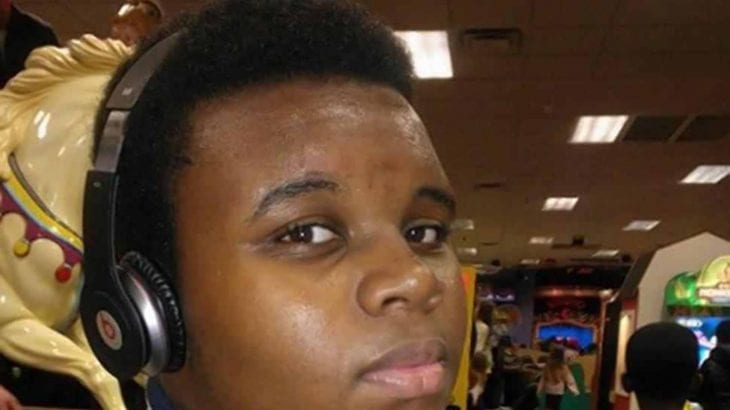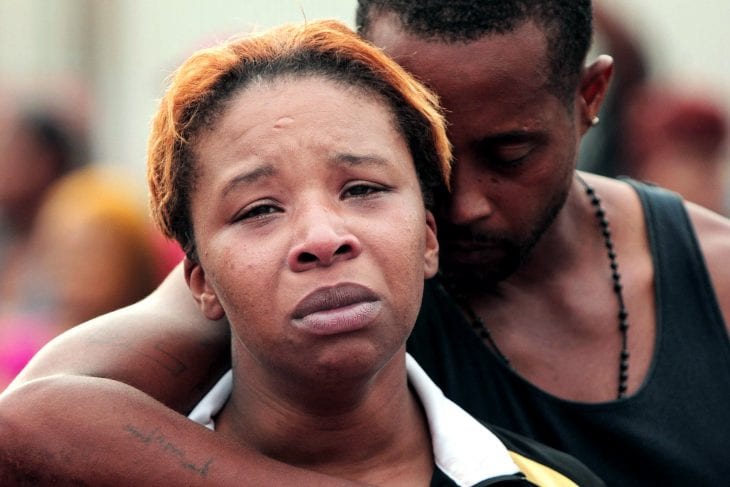My younger brother is 16-years-old. He is six feet, four inches of gentle, timid, and awkward. He loves baseball and breakfast food, family and faith. He is quiet and complex, an introvert who often laughs with me about our frustrations with growing up in a small home with six people.
But in our Orange County hometown, he is feared. A Black teen with a physical presence that far eclipses his white and East Asian peers, he bears the psychic toll of being seen as a walking threat before being seen as a boy. He knows the police are not on his side. He is right; every 28 hours a black person is killed extrajudicially by law enforcement or vigilantes. And that terrifies me.
My body freezes when I think about the possibility of his name joining the ranks of Trayvon Martin, Jordan Davis, Kimani Gray, Kendrec McDade, Ervin Jefferson, Victor Steen, and the countless other unarmed Black teens shot down by police in the prime of their youth.
When I heard Sunday night that 18-year-old Michael Brown was shot dead by police in Ferguson, Missouri, my heart sank. My skin pulled tight around my hands, my stomach churned itself into knots. My mind raced, visions of my brothers’ faces collaged into the painfully familiar sight of yet another innocent Black boy breathing — and bleeding — for the last time.

Source: The Daily Beast
That kind of fear is immobilizing; it is unproductive and unending. It wakes you up at night, claws its way out of the pits of your stomach and into every memory of the precious child you love. It is a fear Black women know intimately, a fear that slips easily into our dreams because it is grounded in realities we want to turn away from during daylight hours.
A mess of anxious energy and terror, I took to Tumblr to share my deep panic about the debilitating prospect of ever feeling this disemboweling Black grief over my own child. Over 2,500 people shared the post. On both Tumblr and Twitter, Black women have expressed their constant fear that bringing another child into a world that seeks to exterminate them is “a fool’s errand.”
And yet, I do not hear this aspect of Black parenting — this wholly rational fear that babies will be snatched from our arms and this world before their own limbs are fully grown — addressed by white advocates in gender equality and reproductive justice. Is it not an assault on Black people’s reproductive rights to brutally and systematically deny us the opportunity to raise children who will grow to adulthood, who can experience the world with childlike wonder? Is it not an assault on Black people’s reproductive rights to tell us we give birth to future criminals and not innocent children, to murder one of us every 28 hours and leave a family in mourning?

Source: The New Yorker
Those victims are not just statistics; they are people, with bodies and families and future generations who will never see them smile again. They are children, mothers, fathers, aunts, uncles, sisters, brothers, and chosen family members. They are integral parts of communities that raise children. As RH Reality Check senior legal analyst Imani Gandy tweeted, we cannot ignore the truth that “police violence against black and brown people is a reproductive justice issue.”
Women of color bear a relationship to reproduction that is fraught with trauma and state control, a perpetual tightrope that stretches beyond the simple paradigm of “pro-choice” organizing. Police violence against our children is a continuation of the same culture that lynched pregnant Black women, that forcibly sterilized cisgender women of color well into 2010, that has required mandatory sterilization for trans people, that paints reproductive rights as an issue only affecting cisgender women. The unifying message is simple: Black bodies, trans bodies, disabled bodies are not worthy of defending. We do not need to continue existing, to further our legacies.
But our lives matter. We deserve to exist and to thrive. And those of us who fight alongside reproductive justice advocates deserve to have our children’s fates be considered in our work, not simply paid lip service to by pro-life campaigns more concerned with pathologizing Black motherhood than supporting Black children. We deserve to see coverage of Michael Brown in feminist outlets without fearing a parade of racist vitriol in the comments section from white women who turn around and beg us to stand in solidarity with them.
We deserve to have our co-strugglers in the fight for reproductive rights remember that our children are babies, too — and also fight against the police brutality that denies them a chance to see adulthood. Any force that systematically and unapologetically turns unconsenting Black wombs into graveyards is a reproductive justice issue. We deserve better.
Original by: Hannah Giorgis
